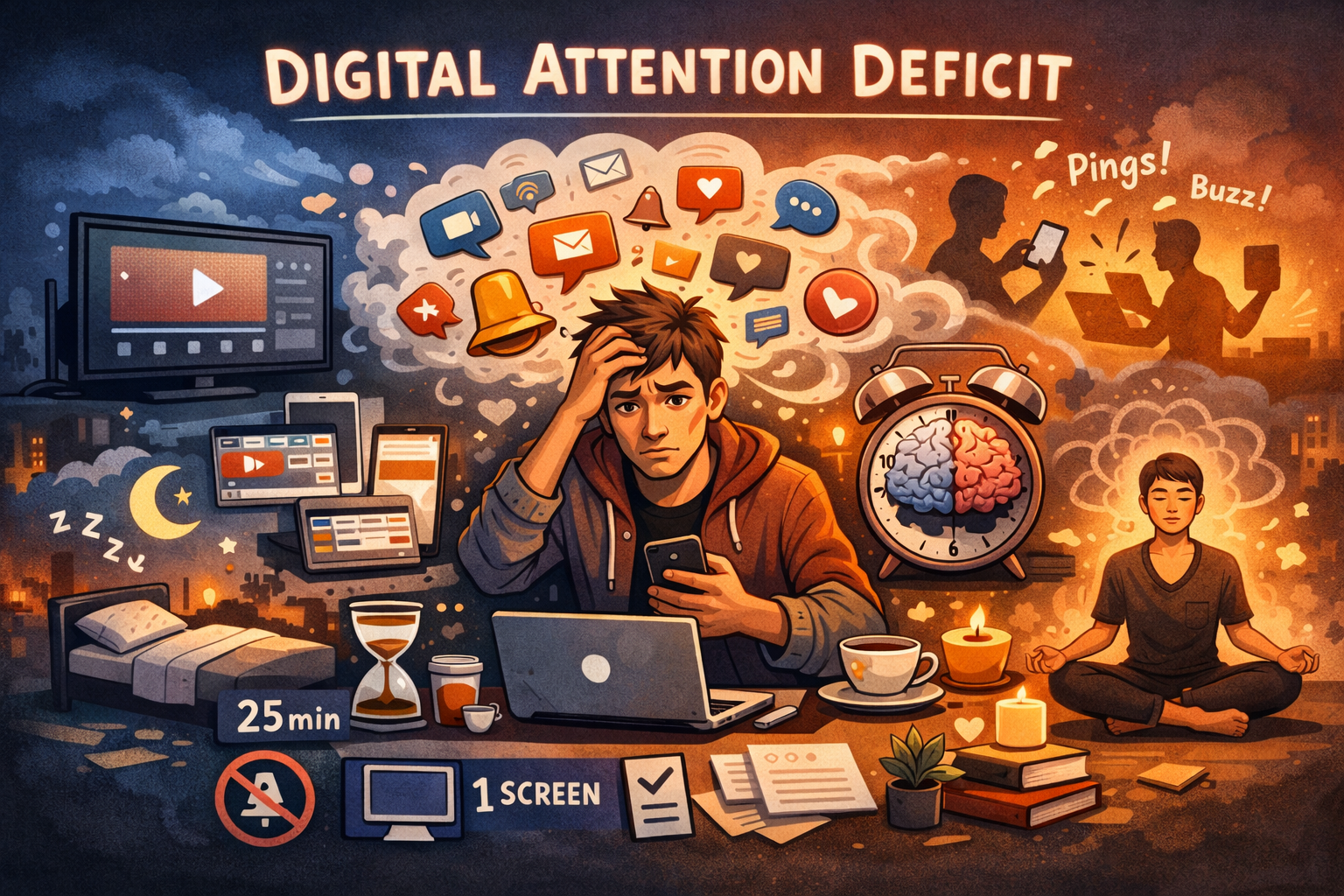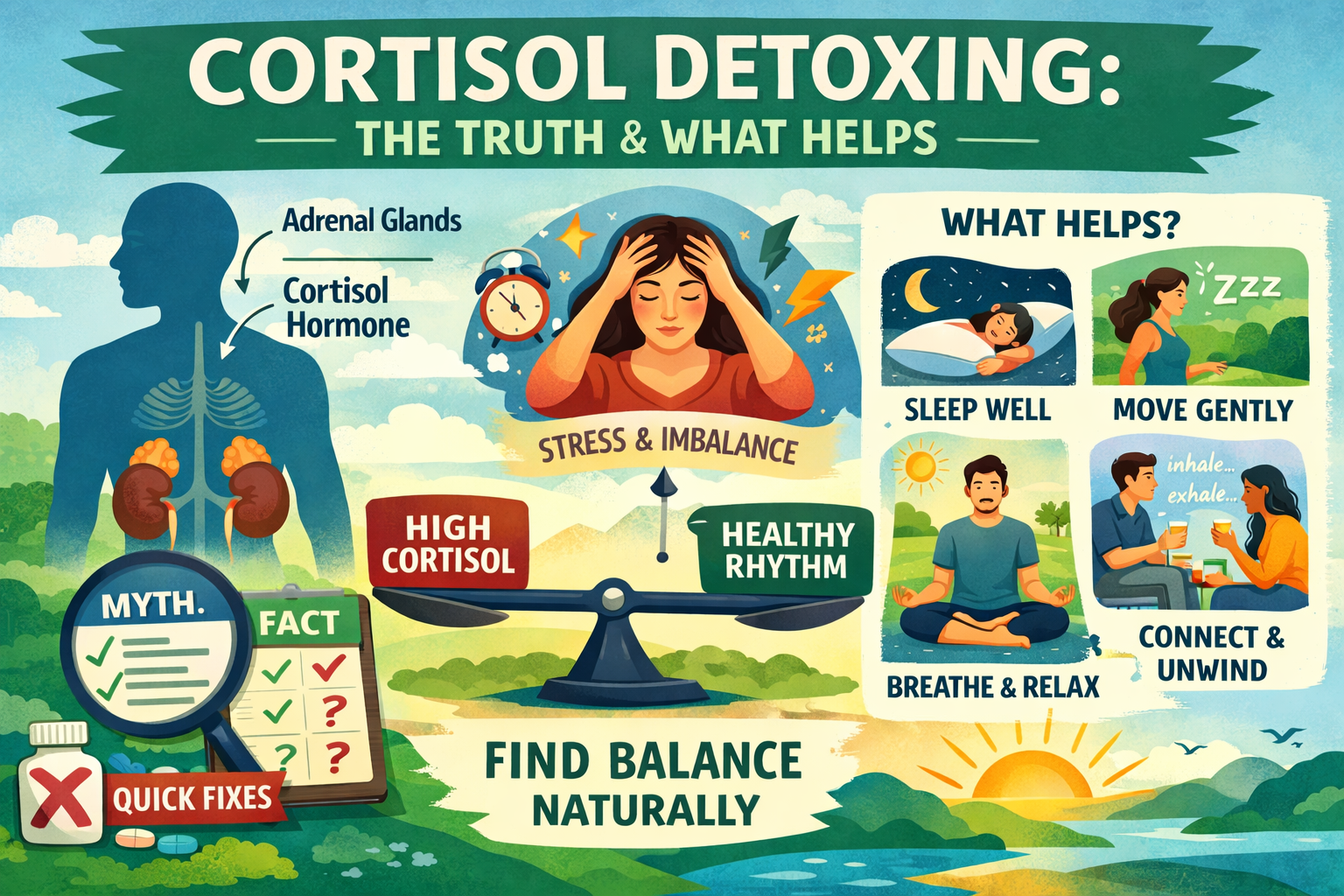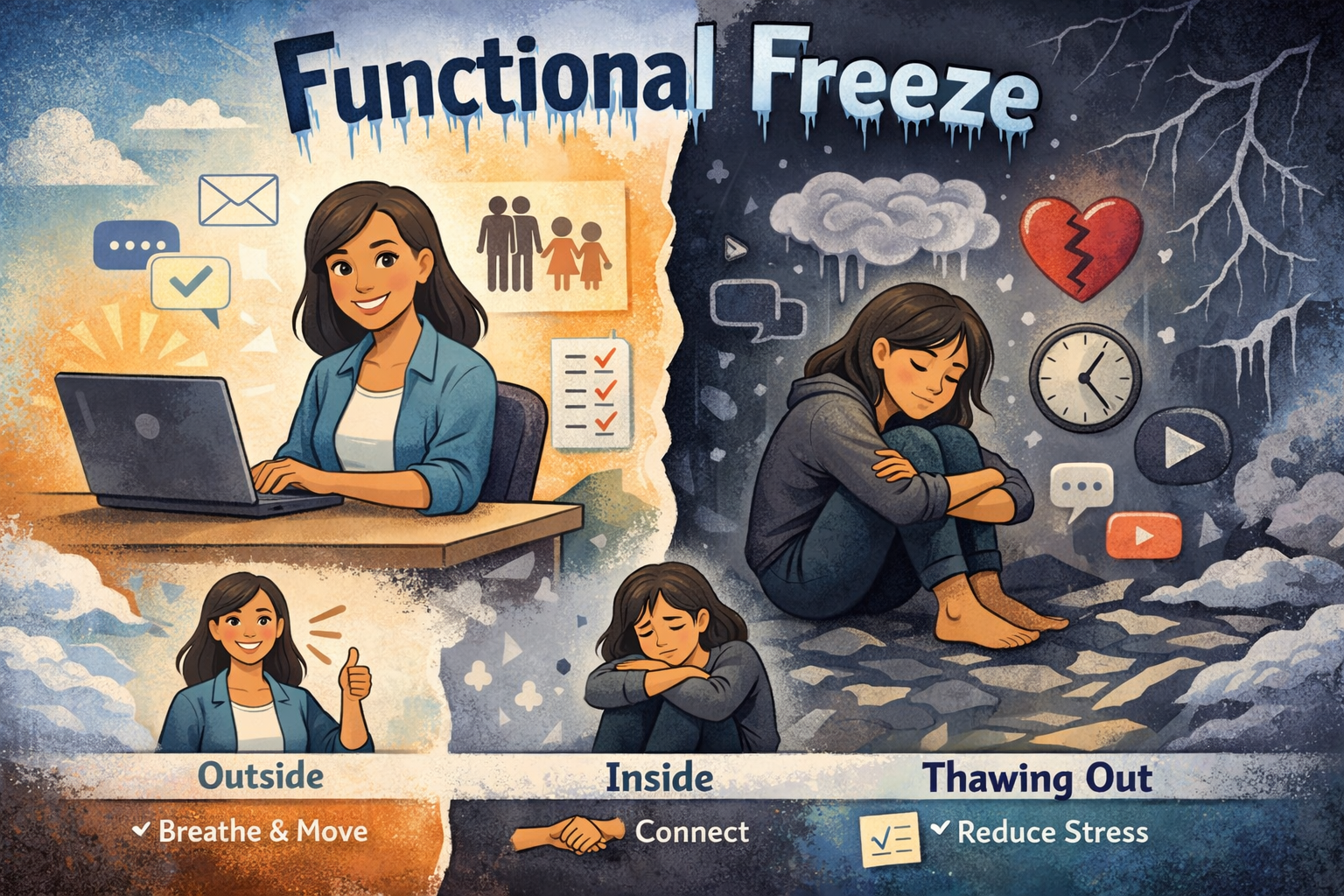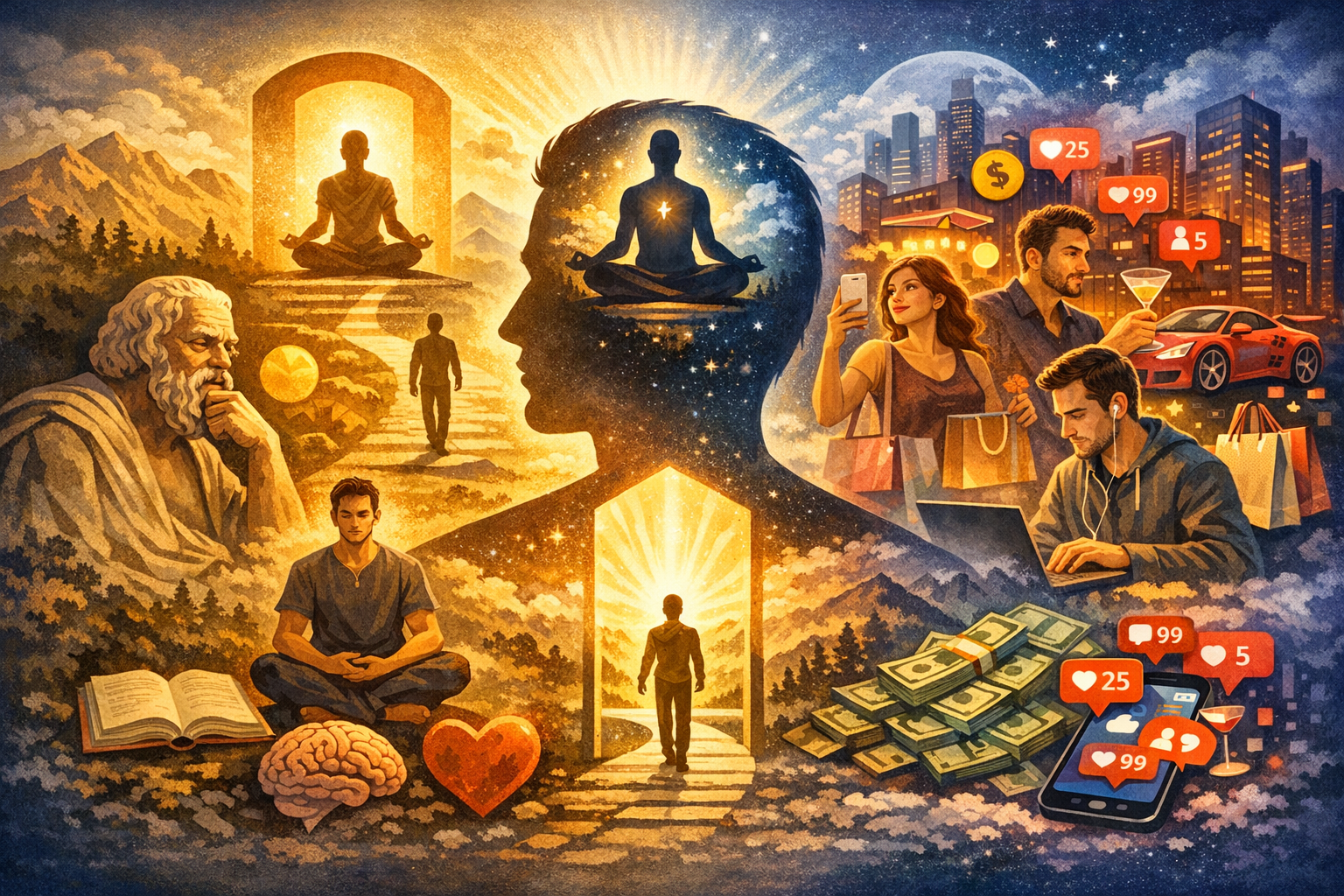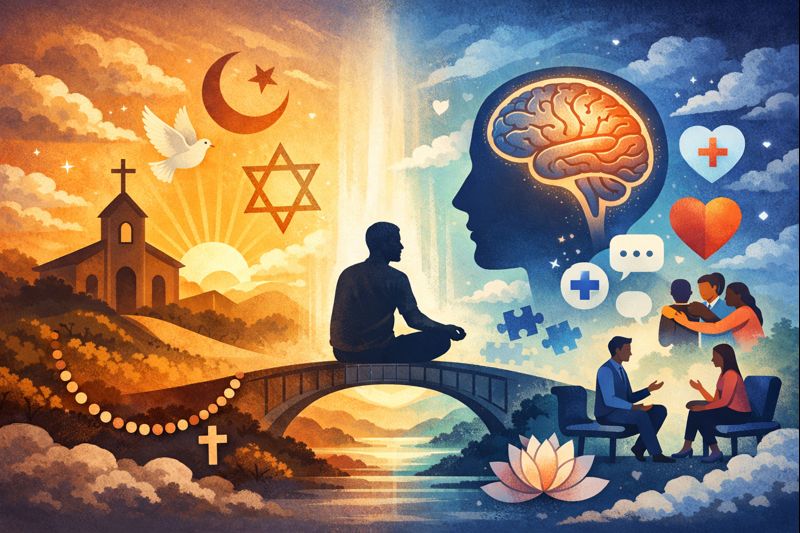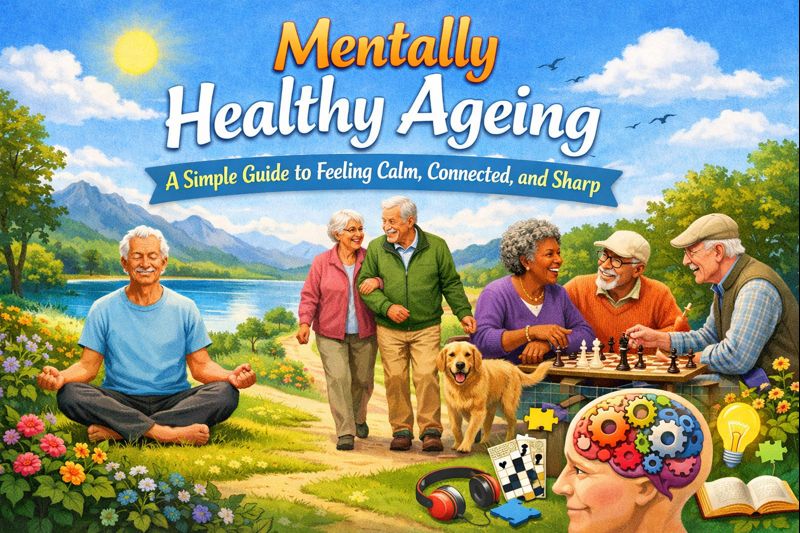The world is seeing a widespread and unprecedented rise in mental health-related cases. The trend is emerging as a significant crisis for humanity. The factors contributing to this crisis are complex and multifaceted, including financial distress and insecurity, social isolation, and imbalance between work and personal life.
Our lifestyle and stress are also triggering the rise in mental health conditions. Consequently, insomnia and sleep disturbance have become a major issue troubling much of the population. The relationship between insomnia and mental health problems is both ways. One is impacting the other.
When we suffer from chronic stress or get trapped in persistent worrying, we do not get sound and adequate sleep. Even in some mental health conditions, such as depression and anxiety, sleep disturbance is a natural fallout. On the other hand, disturbances in the sleep cycle, including insomnia, affect our mental health in the long run.
Imagine lying awake while everyone else sleeps. The darkness becomes a breeding ground for further worry. We become more and more desperate for sleep, which in turn further increases the anxiety. So, it is a vicious circle. It, unfortunately, is the reality for countless individuals battling insomnia.
Insomnia is the thief of sleep. It silently wreaks havoc on our mental well-being. But this is not just a stormy night’s sleep; it is a growing epidemic with far-reaching consequences.
Our busy lives make us choose work over rest and sleep. Not sleeping enough disturbs many essential brain functions and makes us more likely to feel anxious, sad, and have trouble thinking. Good sleep is critical for feeling emotionally well. When we do not sleep well, our mental health suffers.
Insomnia and Mental Health Insomnia does not just make you sleepy during the day. It badly affects our mental health. Research shows a strong link between sleep problems and mental health issues. It is hard to say if insomnia causes mental health issues or the other way around, but they make each other worse.
People with insomnia often have mental health problems, and those with mental health problems often have trouble sleeping. It’s a cycle where lousy sleep leads to more stress, anxiety, and sadness, which in turn makes it harder to sleep.
Memory’s Fog: Sleep is crucial for consolidating memories. Without it, our brains struggle to remember new information and recall important details. Think of your brain as a computer. Without enough sleep, it will struggle to process
information and make memories. This frustration can also keep you at night, creating a frustrating cycle. It can impact work, relationships, and daily life, adding to the frustration. You need to talk to your doctor and explore healthy sleep habits.
Beyond Individual Struggles: Insomnia’s impact extends beyond the individual. It affects workplaces, healthcare systems, and even the economy. Some consequences are lost productivity, increased healthcare costs, and higher accident risks.
How to Improve Sleep But there’s hope. Knowing how insomnia affects mental health is the first step to fixing it. Here are some tips:
Embrace healthy sleep habits: Establish a regular sleep schedule, create a relaxing bedtime routine, and limit screen time before bed. Have a bedtime routine to relax, like reading or taking a bath. We need to be careful with what we eat and drink before bed. We should avoid big meals, caffeine, and alcohol. Also, make our bedroom a calm place for sleep, keeping it cool, quiet, and dark.
Exercise regularly: Exercise has direct benefits for us, including improving cardiovascular health, increasing body muscles, and maintaining a healthy weight. It even helps us to improve our mental health. A huge body of research studies establishes a direct linkage between regular exercise and our physical and mental health. Physical activity can also improve sleep quality. However, we need to avoid strenuous workouts close to bedtime.
Practice relaxation techniques: Yoga, mindfulness-based meditation, and deep breathing can calm the mind and promote sleep. Mindfulness is the ability to be present in the moment. As we experience more moments in the state of ‘mindfulness’, we become more mindful and self-aware.
As a result, people practising mindfulness-based meditation become more emotionally resilient and mentally healthy. They also sleep better. Similarly, yoga and deep breathing exercises impact our mental health differently. Experiencing better sleep is an integral part of our mental health.
Challenge negative thoughts: Sleep invariably gets disturbed when we worry a lot or get trapped in negative and distressing thoughts. It is not easy to get sound sleep under such circumstances. As we are caught in a negative loop of distressing and harmful thoughts, we become mentally stressed and anxious. It further makes us more disturbed.
The first thing we need to do is to identify and challenge negative and unhelpful thoughts that keep us awake. Those thoughts must be reframed and neutralized. For this, Cognitive behavioural therapy can be beneficial.
Paradoxical Intention: There is a counterintuitive sleep technique that involves actively trying to stay awake! It seems surprising. But the logic behind it is simple. When we desperately try to fall asleep, it can fuel anxiety and make sleep even further away. Paradoxical intention, by taking away the pressure and anxiety associated with sleep, can paradoxically help us relax and drift off naturally.
Seek professional help: Do not suffer in silence. Insomnia is an invisible and silent menace. Those who suffer from it know how cruel it becomes at night. When the world sleeps, they are tossing on the bed. It is always better to take medicine to get sleep rather than think about the likely side effects of taking medication.
Often people have the impression that sleeping pills cause more harm than its likely benefits. In any case, people should seek professional help from a doctor or a sleep specialist. They can assess our situation and recommend personalized treatment plans.
To conclude, insomnia is a critical issue that affects our mental health. We can feel better mentally by focusing on it and trying to improve our sleep. So, let us work on sleeping better for a happier and healthier life.
People in tens of millions suffer and struggle in silence. Our ‘stressed’ and fast-paced lifestyle makes people increasingly insomniacs. By understanding the link between insomnia and mental health, seeking help, and adopting healthy sleep habits, we can break free from its grip and reclaim our well-being.



